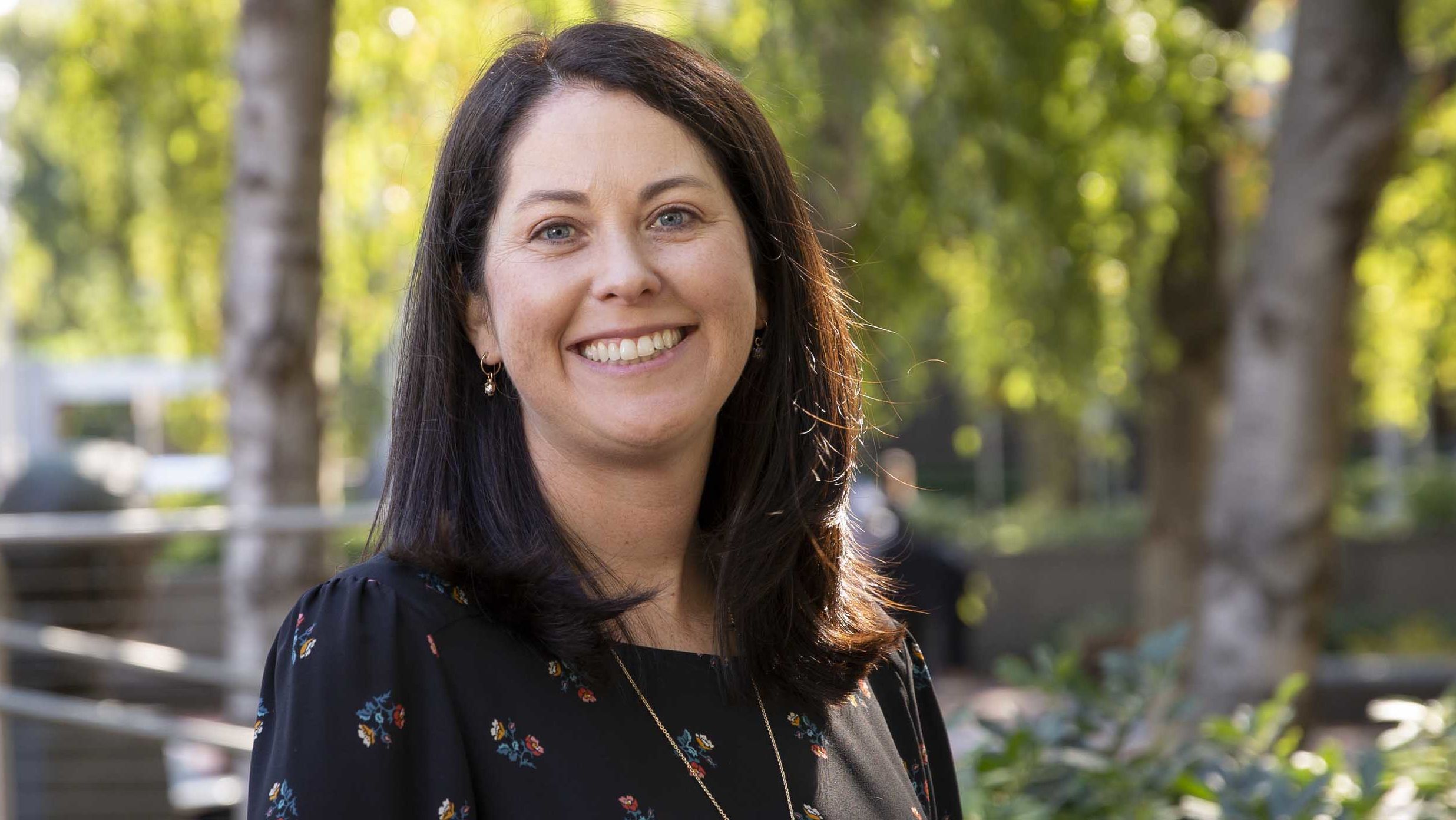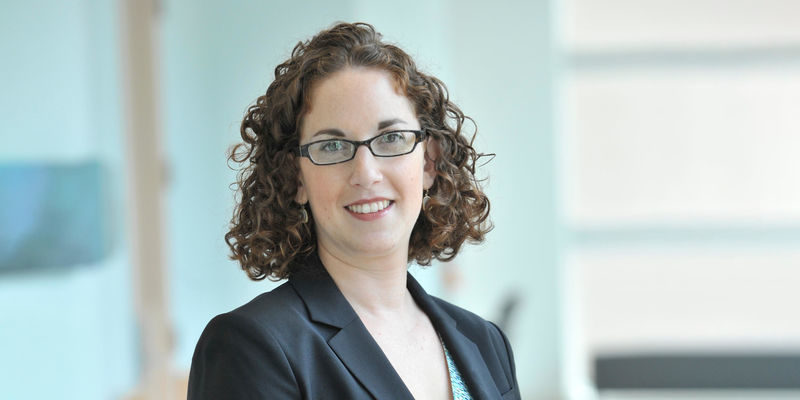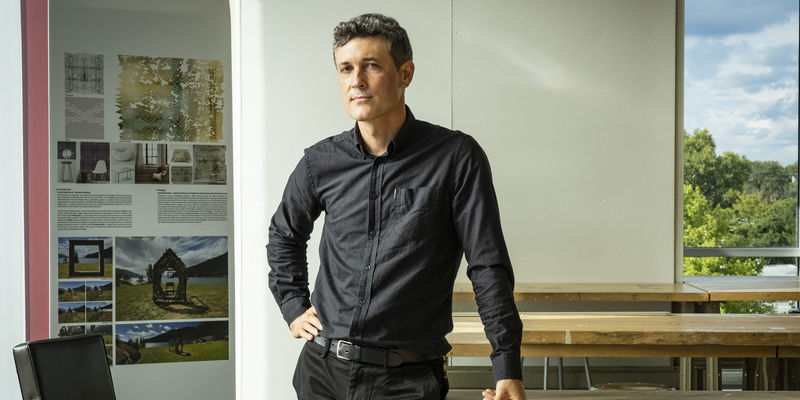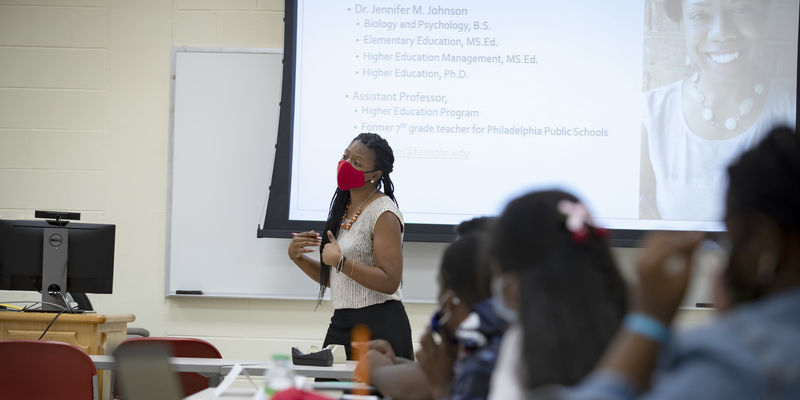Helping first-generation college students succeed
Assistant Dean Juliet Curci describes the challenges faced by first-generation college students and how we can best support them.

As the assistant dean for college access and persistence in the College of Education and Human Development, Juliet Curci identifies and connects pre-college and current Temple students to resources that can support their success.
In her role, she leads a 15-credit dual enrollment program for seniors in the School District of Philadelphia who want to become educators and Upward Bound college readiness programming for Philadelphia public school youth in grades nine to 12.
Curci places a particular emphasis on helping first-generation college students—those defined as the first in their families to attend or potentially graduate from college—navigate university life. To bolster Temple’s support of “first-gen” students and make sure the efforts are both collaborative and strategic, Curci created the College Access Community of Practice: an interdisciplinary group of Temple faculty, staff and students with the goal of making sure Temple’s first-generation students know where to to turn for the help they need to achieve their goals, and Temple as an institution does all it can to support first-gen students toward success and the completion of their degrees.
On Nov. 8, planned by the College Access Community of Practice, Temple is kicking off its first-ever First-generation College Celebration Week with a series of programs for faculty, staff and students geared toward addressing the needs of and saluting this diverse group of Owls.
We asked Curci more about her role and how we can help our first-generation students.
Temple Now: Why are first-generation college students so important to Temple?
Juliet Curci: More than 30% of our first-year students and 40% of our transfer students identify as first-generation students. And they are a very diverse group in terms of socioeconomic status, racial background, age bracket, aspirations, etc., as you may imagine. Many at Temple don’t really realize how big this group is, so it’s a really important thing to share that there is a very large community of first-gen students. We need to make sure they feel connected within our Temple community, if not to other first-year students then to student groups and different affinity groups, so they feel connected somewhere. It’s really important for students’ college experiences [for them] to feel that they belong and that they are important to Temple, which they are.
First-gen students bring a diversity of ideas, perspectives and experiences to their coursework and programs at Temple; they contribute as members and leaders of various student groups, clubs and teams; and they represent Temple in their internships, field experiences, and on- and off-campus employment. Temple wouldn’t be the institution it is today without the many, many students who have been the first in their families to attend or graduate from college who chose and continue to choose Temple as the place to pursue their education on their path to achieving their dreams.
TN: What challenges do first-generation students face?
JC: A lot of it is around access to information. For example, with finances, it’s, ‘How do I go about applying for scholarships? How do I complete the FAFSA or take advantage of work-study job opportunities?’
Or, a challenge might be, how can first-gen students find a job on campus that more closely aligns with their intended career field, rather than a job in retail that they have to spend extra time and money traveling to and from potentially?
And then, of course, there are basic needs. Students need to know where to go in emergency situations and how they can gain access to public benefits.
TN: You’ve mentioned a lot of challenges around access to financial information. What other types of challenges might this group of students face?
JC: The challenges that I see with students having difficulty completing a semester successfully are not unique to first-gen students. However, what is sometimes unique to first-gen students is figuring out how to navigate or receive guidance about handling those challenges if members of their families are unfamiliar with them, having not attended or graduated from college themselves. Many students, particularly first-year students coming to college from high school, have difficulty with personal organization and time management; balancing work, school and family responsibilities; and adjusting to the academic expectations that are sometimes different from those they experienced in high school, particularly related to reading and writing.
Feeling comfortable asking for help is also an area that students sometimes struggle with, understandably, as they are carrying a lot of their own and their families’ expectations on their backs and may feel that asking for help is a sign of weakness or will confirm biases others may hold. While a poor grade on an assignment is certainly troubling, it doesn’t have to be catastrophic to one’s semester or even course grade with the academic, mental health, financial and other resources available to Temple students. However, if students are not familiar with the resources or not supported to speak with a university staff member, advisor or professor or attend office hours, which is an intimidating prospect to many, they may believe rectifying the situation or building up one’s tools and skills for facing similar challenges in the future isn’t possible. They may question their ability to succeed in college and at Temple in particular and that is absolutely not what we want.
The students whom I’ve worked with.are very bright and really capable, and they just need that support around the navigation and then, once it clicks, they’ve got it.
TN: What are some of the main ways Temple can provide support?
JC: One of the ways we understand where students are is by talking to them, and I think that’s where it’s been so important to collaborate with students and include them in our strategic efforts specifically to understand, from their perspectives, what the needs of first-gen students are and how they are being met at Temple.
One thing we are finding is that it’s about relationships. So it’s not just like, ‘Hey here’s a whole host of information for you,’ but rather, it’s, ‘Who are the people who can help me make sense of that information and understand how to really take advantage of it?’
The College Access Community of Practice has been excited to collaborate with the Center for the Advancement of Teaching at Temple so that faculty members—those who are working with the students day in and day out—know how to help first-gen students and where to send them when they are facing their hurdles.
And many of our faculty and staff members at Temple were themselves first-generation college students, so having them reach out to our current first-gen students and build that connection and sense of community may also go a long way in supporting first-gen students’ sense of belonging at Temple and their success.



